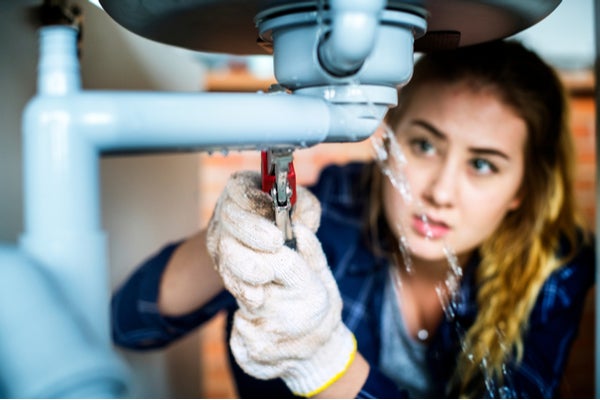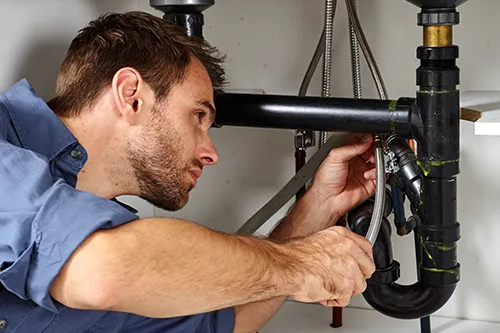Services
Have you been trying to locate help and advice concerning Ways to Make Your Pipes Last Longer?

The key to durable devices, unsurprisingly, appertains maintenance. There's no hard and fast guideline that can guarantee your plumbing devices a lengthy wear, however you can avoid unnecessary damages as well as repair work by avoiding negative plumbing routines.
You ought to stop doing these 6 things else you'll maintain calling your plumber over for minor faults.
Flushing every little thing
Yes, your toilet drainpipe leads to the drains, yet that doesn't imply you need to dump just anything down the tubes. Several 'flushable' materials are really terrific blockage beginners, as an example dental floss. Asides keeping evident non-flushable materials like cables and also plastics out of your bathroom, you must likewise avoid flushing cotton buds, menstruation products, wipes, daipers and also condoms down the toilet drain.
Putting grease in the sink
We understand properly getting rid of grease after a hearty meal is a discomfort. But merely pouring it away can do long-term damage to your pipelines. "The fat and oil can obstruct your drain terribly adequate to force you to call a plumber," describes Dawson. "Plumbing functions best when it's well cared for-- not abused with oil."
Utilizing excessive drainpipe cleaner
Utilizing a drainpipe cleaner greater than once or twice a month is an indicator that something severe is going on within your pipelines. Currently, instead of encountering the main concern, you opt for a quick fix; a carbonated drainpipe cleaner. Rightfully, a drain cleaner will care for the blockage, yet at what cost?
The chemicals in a drainpipe cleaner can speed up the deterioration of your pipes. Add that to whatever underlying trouble is triggering the obstruction and you may have to a severe trouble on your hands.
If you experience too many obstructions, call your emergency plumber rather than using a drainpipe cleaner.
Not rinsing recipes before filling them right into the dishwasher
it's called a dish washer, however throwing in meals, pots, as well as frying pans covered in big food particles can actually cause some significant damages to the appliance, bring about lasting issues down the line. "Property owners may need to obtain their dish washer repaired regularly if they do not wash their recipes before loading, or a minimum of get rid of bigger food items," discusses Audrey Monell, owner of Forrest Anderson Plumbing as well as A/c in Glendale, Arizona. "Food that obtains stuck on recipes creates the dish washer to function harder, which can wear down components much faster, causing troubles."
DIYing every little thing
With plumbing, a stitch in time actually does conserve nine. You can avoid a fullblown plumbing emergency by calling your plumber at the right time.
You might have found out a few plumbing hacks from your father, but you should certainly understand where to draw the line and also call a specialist. For instance, you may have the ability to repair a clog on your own, but you shouldn't attempt to change a pipeline. You can mismatch pipelines or overtighten a bolt, creating more injury and also damage than you believed. Calling a plumber is a safe as well as budget-friendly choice.
Not transforming your dish washer pipes
One simple method to make sure that you use your dishwasher for several years is to change the hose pipe a minimum of once in 5 years. This additionally gets cleaning device pipes.
In time, food fragments, soap as well as oil can form clogs within your pipelines. Changing them in a timely manner will certainly prevent any kind of presure develop that can damage the interior functions of your dishwashing machine or cleaning device.
A reinforced steel braided hose does a terrific task of lengthening your machine's use time.
No winter season safety measures
Extreme weather are bad for your pipes, especially if they're made of steel. You should protect your revealed pipes, and also your water tank, even if you have a hot water heater. You ought to likewise turn off your garden pipe shutoff and any other exterior water networks. These channels are electrical outlets for cool; you pipes can start to freeze from outdoors if you do not.
How Hard Water Damages Your Plumbing and Appliances
Hard water is no stranger to most households across America. This silent invader affects 85% of homes in the United States every day, wreaking havoc on pipes, plumbing fixtures, and water-using appliances.
Should you become a victim of hard water, you must understand exactly what it is and how it affects your plumbing and appliances. This will help you determine the correct measures to put in place to fix or prevent any problems that may arise.
First off, what exactly is “hard” water?
In short, “hard water” is used to describe water that contains relatively high amounts of dissolved minerals, primarily calcium and magnesium, and a host of trace metals. When rainwater falls from the sky (usually in a pure form), it absorbs the hardness minerals from rocks and soil, which changes it from soft to hard water.
What about my plumbing and appliances?
Mineral deposits from hard water can cause buildup on tubs, shower, sinks, faucets. But that’s only a small scratch of the surface. Those minerals can gradually build up inside pipes, fixtures, water heaters, washing machines, and dishwashers. Once they accumulate in those areas, they can clog pipes and create major problems throughout your plumbing system, from reduced water flow to increased pressure on pipes and fixtures.
This limescale buildup might affect some appliances, causing them to operate less efficiently and wear down faster. And the result? Higher energy bills, more (costly) plumbing replacements and repairs, and damaged appliances.
Keep in mind that certain types of plumbing are more susceptible to clogging than others. Copper, PVC, and PEX pipes are more resistant to hard water buildup and corrosion, but they can still get clogged or completely blocked by scale deposits.
How do I know if my water is hard?
White limescale buildup on plumbing fixtures (or any of the other signs mentioned above) is usually a good sign that your water is hard. If you suspect that you have hard water, you can simply shake up a small amount of dish soap and water in a closed container. If the mixture doesn’t create a lot of suds, you probably have hard water.
The most precise method, however, is to test your water with a DIY test kit (sold online or at local home centers or hardware stores) or send a water sample from your tap to a local lab to be tested. Be sure that you understand the nature of the test, the water condition being measured, and the significance of the test results.
Another way to obtain an estimate of water hardness is to check your annual water quality report to see if your water provider has reported any instance(s) of water hardness in your water supply.
https://www.springwellwater.com/how-hard-water-damages-your-plumbing-and-appliances/

Do you really like reading up on Leak Detection and Repair Without Destroying Your Home? Try to leave a remark further down. We would be glad to see your feelings about this review. We hope that you visit us again later on. If you please take the opportunity to promote this blog posting if you enjoyed reading it. Thank you for your time. Visit us again soon.
Schedule Free Estimate